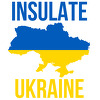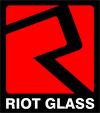
Health, Safety, and Welfare
Health, Safety and Welfare
Displaying 451 - 475 of 528 results.
FIRST PREV [401-425] [426-450] [451-475] [476-500] [501-525] NEXT LAST

 The reasons for and benefits of adopting STEP have become increasingly clear as both national and international communities continue in their efforts to transition from dirty fuel sources to renewable ones. This course reviews the various systems and strategies that enable STEP, such as smart grids and microgrids, and explores strategies that STEP enables, such as integrated design processes, efficient water management, and energy innovation.
The reasons for and benefits of adopting STEP have become increasingly clear as both national and international communities continue in their efforts to transition from dirty fuel sources to renewable ones. This course reviews the various systems and strategies that enable STEP, such as smart grids and microgrids, and explores strategies that STEP enables, such as integrated design processes, efficient water management, and energy innovation.

https://redirect.aecdaily.com/s18122/www.aecdaily.com/course/1035660
This course contains sustainable design information. See the course details page for more information.
This course is ONLINE: SELF-PACED. Experience it on your own schedule, at your convenience.

 While exotic, tropical hardwoods provide beauty and durability as materials for outdoor decks, they are expensive to maintain and come with concerns about their sustainability and the effects of harvesting on ecosystems. Multilayer, cellular PVC decking products combine the desired durability and look of hardwoods but utilize a more sustainable production process to create materials that are easier to maintain.
While exotic, tropical hardwoods provide beauty and durability as materials for outdoor decks, they are expensive to maintain and come with concerns about their sustainability and the effects of harvesting on ecosystems. Multilayer, cellular PVC decking products combine the desired durability and look of hardwoods but utilize a more sustainable production process to create materials that are easier to maintain.

https://redirect.aecdaily.com/s12394/www.aecdaily.com/course/1027272
This course is ONLINE: SELF-PACED. Experience it on your own schedule, at your convenience.

 Transitioning from employee to sole proprietor of an architecture firm is the dream of many architects, but it comes with a need to understand licensing laws more fully and have a good grasp of acceptable rules of conduct for the profession. This course examines the ethical and legal considerations involved when an architect sets out to establish their own practice. In particular, this course considers how legal requirements for soliciting work may vary between jurisdictions.
Transitioning from employee to sole proprietor of an architecture firm is the dream of many architects, but it comes with a need to understand licensing laws more fully and have a good grasp of acceptable rules of conduct for the profession. This course examines the ethical and legal considerations involved when an architect sets out to establish their own practice. In particular, this course considers how legal requirements for soliciting work may vary between jurisdictions.
Want free access to this and other NCARB courses? The NCARB Continuum Education Program offers free HSW CE courses to licensure candidates and architects who hold a current NCARB Certificate, which can be accessed through their NCARB record. Renew your NCARB Certificate, or get NCARB Certified.

https://redirect.aecdaily.com/s1003903/www.aecdaily.com/course/1006754
This course is part of one or more "Course Collections". Click here to view the details.
In order to download this course, a USD $25.00 fee must be paid.
This course is ONLINE: SELF-PACED. Experience it on your own schedule, at your convenience.

 This course provides an overview of one-piece shower bases, glass shower enclosures, and accessories and includes discussions on methods of waterproofing shower floors, shower design, and installation and tiling guidelines for shower pans and accessories.
This course provides an overview of one-piece shower bases, glass shower enclosures, and accessories and includes discussions on methods of waterproofing shower floors, shower design, and installation and tiling guidelines for shower pans and accessories.

https://redirect.aecdaily.com/s625463/www.aecdaily.com/course/953018
This course is ONLINE: SELF-PACED. Experience it on your own schedule, at your convenience.

 This introductory course on spray polyurethane foam (SPF) covers component chemistry, different types of SPF, and the proper use of SPF in construction applications. In addition, the course addresses code compliance related to SPF for residential and commercial construction, as well as safe SPF installation practices. Participants will come away with a strong knowledge of how the proper use and application of spray foam can improve the indoor environment and the durability of the built environment.
This introductory course on spray polyurethane foam (SPF) covers component chemistry, different types of SPF, and the proper use of SPF in construction applications. In addition, the course addresses code compliance related to SPF for residential and commercial construction, as well as safe SPF installation practices. Participants will come away with a strong knowledge of how the proper use and application of spray foam can improve the indoor environment and the durability of the built environment.

https://redirect.aecdaily.com/s356556/www.aecdaily.com/course/1042076
This course contains sustainable design information. See the course details page for more information.
This course is part of one or more "Course Collections". Click here to view the details.
This course is ONLINE: SELF-PACED. Experience it on your own schedule, at your convenience.

 Vacuum insulation panels (VIPs) offer higher thermal resistance per unit thickness than traditional insulation materials. This means a building envelope can meet the effective R-values for enclosures required by the energy codes without having to increase the thickness of the walls, roof, or floors. This course discusses how VIPs work, why they are effective, and the impact the properties of the materials used to construct a VIP can have on its performance. VIP installations and the latest developments in VIP technology are reviewed to illustrate the advantages of using VIPs as thermal insulation in the design of energy-efficient buildings.
Vacuum insulation panels (VIPs) offer higher thermal resistance per unit thickness than traditional insulation materials. This means a building envelope can meet the effective R-values for enclosures required by the energy codes without having to increase the thickness of the walls, roof, or floors. This course discusses how VIPs work, why they are effective, and the impact the properties of the materials used to construct a VIP can have on its performance. VIP installations and the latest developments in VIP technology are reviewed to illustrate the advantages of using VIPs as thermal insulation in the design of energy-efficient buildings.

https://redirect.aecdaily.com/s806330/www.aecdaily.com/course/827398
This course contains sustainable design information. See the course details page for more information.
This course is ONLINE: SELF-PACED. Experience it on your own schedule, at your convenience.

 Metals are ubiquitous in today’s hardscape and are used in a variety of applications. This course reviews the important considerations related to the proper material, finish, and manufacturing technique to meet the function, aesthetic, and budget of metal designs for hardscape applications.
Metals are ubiquitous in today’s hardscape and are used in a variety of applications. This course reviews the important considerations related to the proper material, finish, and manufacturing technique to meet the function, aesthetic, and budget of metal designs for hardscape applications.

https://redirect.aecdaily.com/s921773/www.aecdaily.com/course/962287
This course contains accessible design information. See the course details page for more information.
This course is ONLINE: SELF-PACED. Experience it on your own schedule, at your convenience.

 Protected membrane roof (PMR) systems offer many benefits to building owners and provide architects with design options that can maximize the energy efficiency, durability, and performance of a building envelope. This course compares the functional and physical features of PMR systems to conventional low-slope roofing applications and discusses the standard ASCE 7 and its impact on wind uplift design.
Protected membrane roof (PMR) systems offer many benefits to building owners and provide architects with design options that can maximize the energy efficiency, durability, and performance of a building envelope. This course compares the functional and physical features of PMR systems to conventional low-slope roofing applications and discusses the standard ASCE 7 and its impact on wind uplift design.

https://redirect.aecdaily.com/s13907/www.aecdaily.com/course/874855
This course contains sustainable design information. See the course details page for more information.
This course is ONLINE: SELF-PACED. Experience it on your own schedule, at your convenience.

 One of the more complicated issues today in building science is addressing moisture movement, since moisture can penetrate a building in several different ways and result in material degradation, air quality issues, and failure of the building enclosure. This course examines the ways moisture can enter a structure and discusses the role of different moisture control layers that, when correctly placed and installed, can prevent unwanted moisture infiltration.
One of the more complicated issues today in building science is addressing moisture movement, since moisture can penetrate a building in several different ways and result in material degradation, air quality issues, and failure of the building enclosure. This course examines the ways moisture can enter a structure and discusses the role of different moisture control layers that, when correctly placed and installed, can prevent unwanted moisture infiltration.

https://redirect.aecdaily.com/s9572/www.aecdaily.com/course/953062
This course contains sustainable design information. See the course details page for more information.
This course is ONLINE: SELF-PACED. Experience it on your own schedule, at your convenience.

 Trash, recycling, and linen chutes must be designed, installed, and maintained to meet the 2019 NFPA 82 standard. This course addresses trash, recycling, and linen chutes and includes discussions on system components, accessory components, compactors and sorters, and meeting NFPA 82 requirements. The program also guides you through a typical installation of a chute system.
Trash, recycling, and linen chutes must be designed, installed, and maintained to meet the 2019 NFPA 82 standard. This course addresses trash, recycling, and linen chutes and includes discussions on system components, accessory components, compactors and sorters, and meeting NFPA 82 requirements. The program also guides you through a typical installation of a chute system.

https://redirect.aecdaily.com/s3552/www.aecdaily.com/course/884605
This course is ONLINE: SELF-PACED. Experience it on your own schedule, at your convenience.

 The war in Ukraine has left thousands living in substandard housing conditions, insufficient for winter weather. This course reviews a solution developed by a British engineer that addresses the pressing problem of delivering replacement windows in a war zone to improve thermal comfort in Ukrainian homes.
The war in Ukraine has left thousands living in substandard housing conditions, insufficient for winter weather. This course reviews a solution developed by a British engineer that addresses the pressing problem of delivering replacement windows in a war zone to improve thermal comfort in Ukrainian homes.

https://redirect.aecdaily.com/s1096186/www.aecdaily.com/course/1100786
This course is ONLINE: SELF-PACED. Experience it on your own schedule, at your convenience.

 Vinyl has long been a material of choice for construction products for interiors and exteriors because of its durability, cleanability, affordability, and suitability for a vast range of applications. This course furthers the conversation by discussing vinyl’s recyclability and sustainability and the attributes of laminated rigid PVC exterior and interior wall panels and siding and soffit products.
Vinyl has long been a material of choice for construction products for interiors and exteriors because of its durability, cleanability, affordability, and suitability for a vast range of applications. This course furthers the conversation by discussing vinyl’s recyclability and sustainability and the attributes of laminated rigid PVC exterior and interior wall panels and siding and soffit products.

https://redirect.aecdaily.com/s1042490/www.aecdaily.com/course/1060032
This course contains sustainable design information. See the course details page for more information.
This course is part of one or more "Course Collections". Click here to view the details.
This course is ONLINE: SELF-PACED. Experience it on your own schedule, at your convenience.

 While all pavements require maintenance and eventually rehabilitation, the modular nature of interlocking concrete pavement (ICP) requires maintenance procedures distinctly different from those for monolithic pavements. This course provides information on surface cleaning, sealers, sealing procedures, and joint sand stabilization. Repair procedures for the subgrade, base, bedding, and paver layers are also provided. Snow management techniques are addressed, and the course concludes with an in-depth look at pavement management using ASTM procedures for establishing a pavement condition index.
While all pavements require maintenance and eventually rehabilitation, the modular nature of interlocking concrete pavement (ICP) requires maintenance procedures distinctly different from those for monolithic pavements. This course provides information on surface cleaning, sealers, sealing procedures, and joint sand stabilization. Repair procedures for the subgrade, base, bedding, and paver layers are also provided. Snow management techniques are addressed, and the course concludes with an in-depth look at pavement management using ASTM procedures for establishing a pavement condition index.

https://redirect.aecdaily.com/s7816/www.aecdaily.com/course/990200
This course is ONLINE: SELF-PACED. Experience it on your own schedule, at your convenience.

 Power and charging requirements for hospitality facilities are changing radically and rapidly. This course examines the options for and benefits of supplying power and charging outlets in walls, furniture, headboards, nightstands, public seating, and public gathering spaces, including outdoor areas, as well as the applicable codes for furniture-based power outlets. The course concludes with an overview of the benefits of occupancy sensors and auto-off switches in guest rooms and the installation requirements to comply with energy and electrical codes.
Power and charging requirements for hospitality facilities are changing radically and rapidly. This course examines the options for and benefits of supplying power and charging outlets in walls, furniture, headboards, nightstands, public seating, and public gathering spaces, including outdoor areas, as well as the applicable codes for furniture-based power outlets. The course concludes with an overview of the benefits of occupancy sensors and auto-off switches in guest rooms and the installation requirements to comply with energy and electrical codes.

https://redirect.aecdaily.com/s525798/www.aecdaily.com/course/1017988
This course is ONLINE: SELF-PACED. Experience it on your own schedule, at your convenience.

 New technology and improvements in masonry veneer installation can help your team save time and money in the construction process while providing superior results. In this course, you'll learn how cutting-edge technology is helping masons move beyond traditional lath and scratch and be introduced to the principles behind enhanced masonry veneer installation systems (EMVIS). Learn how to create permanent, high-strength installations for residential, commercial, and industrial applications using EMVIS with fortified mortars and innovative waterproofing barrier membranes that protect against air and water penetration.
New technology and improvements in masonry veneer installation can help your team save time and money in the construction process while providing superior results. In this course, you'll learn how cutting-edge technology is helping masons move beyond traditional lath and scratch and be introduced to the principles behind enhanced masonry veneer installation systems (EMVIS). Learn how to create permanent, high-strength installations for residential, commercial, and industrial applications using EMVIS with fortified mortars and innovative waterproofing barrier membranes that protect against air and water penetration.

https://redirect.aecdaily.com/s8761/www.aecdaily.com/course/1009286
This course contains sustainable design information. See the course details page for more information.
This course is ONLINE: SELF-PACED. Experience it on your own schedule, at your convenience.

 Provides an overview of the types, features, and benefits of designing with cellular PVC trim, including a discussion on the installation guidelines and manufacturing processes.
Provides an overview of the types, features, and benefits of designing with cellular PVC trim, including a discussion on the installation guidelines and manufacturing processes.

https://redirect.aecdaily.com/s443055/www.aecdaily.com/course/570420
This course contains sustainable design information. See the course details page for more information.
This course is ONLINE: SELF-PACED. Experience it on your own schedule, at your convenience.

 Roofing technologies have come a long way from labor-intensive BUR systems that achieved watertightness through redundancy. Today’s single-ply membranes are thin, light and reliable, and installation is safe and efficient. This course focuses on thermoplastic single-plies, particularly those that are PVC based, and explores their benefits and limitations as well as the important factors to consider when selecting a roof system, ranging from fastening techniques to warranties to sustainability.
Roofing technologies have come a long way from labor-intensive BUR systems that achieved watertightness through redundancy. Today’s single-ply membranes are thin, light and reliable, and installation is safe and efficient. This course focuses on thermoplastic single-plies, particularly those that are PVC based, and explores their benefits and limitations as well as the important factors to consider when selecting a roof system, ranging from fastening techniques to warranties to sustainability.

https://redirect.aecdaily.com/s5147/www.aecdaily.com/course/853451
This course is ONLINE: SELF-PACED. Experience it on your own schedule, at your convenience.

 In a riot, burglary, or active shooter event, the importance of keeping an armed intruder out of a building cannot be underestimated. Examined here are fenestration security risks, considerations, and solutions for educational, religious, commercial, and retail applications, as well as applicable performance testing and standards. The course provides an in-depth discussion on new, retrofit access-denial glazing systems that provide maximum protection against forced entry and ballistic threats.
In a riot, burglary, or active shooter event, the importance of keeping an armed intruder out of a building cannot be underestimated. Examined here are fenestration security risks, considerations, and solutions for educational, religious, commercial, and retail applications, as well as applicable performance testing and standards. The course provides an in-depth discussion on new, retrofit access-denial glazing systems that provide maximum protection against forced entry and ballistic threats.

https://redirect.aecdaily.com/s858139/www.aecdaily.com/course/880596
This course is part of one or more "Course Collections". Click here to view the details.
This course is ONLINE: SELF-PACED. Experience it on your own schedule, at your convenience.

 This presentation celebrates the value of incorporating artisanal, handcrafted fixtures and furnishings into a building’s design. Not only are these products unique, functional, and aesthetically appealing, but they can also establish a sense of connection with their maker. Many artisanal, handcrafted products are made using traditional techniques that have been passed down over time, often from generation to generation. And because many of these products are made from sustainable, recycled, or reclaimed materials that are locally available, they can help reduce the environmental impact of a new build. This course illustrates how sourcing artisan-made products for their projects can allow designers and builders to effect social, economic, and environmental change.
This presentation celebrates the value of incorporating artisanal, handcrafted fixtures and furnishings into a building’s design. Not only are these products unique, functional, and aesthetically appealing, but they can also establish a sense of connection with their maker. Many artisanal, handcrafted products are made using traditional techniques that have been passed down over time, often from generation to generation. And because many of these products are made from sustainable, recycled, or reclaimed materials that are locally available, they can help reduce the environmental impact of a new build. This course illustrates how sourcing artisan-made products for their projects can allow designers and builders to effect social, economic, and environmental change.

https://redirect.aecdaily.com/s610566/www.aecdaily.com/course/857878
This course contains sustainable design information. See the course details page for more information.
This course is part of one or more "Course Collections". Click here to view the details.
This course is ONLINE: SELF-PACED. Experience it on your own schedule, at your convenience.

 Integrated fire and smoke door systems meet all life safety and compartmentalization requirements without sacrificing an architect’s vision. This course explains how multiple codes and standards apply to an opening, elevator lobby, and elevator shaft and discusses how integrated door systems provide building owners with a complete turnkey door system that uses components engineered to work as a unified whole.
Integrated fire and smoke door systems meet all life safety and compartmentalization requirements without sacrificing an architect’s vision. This course explains how multiple codes and standards apply to an opening, elevator lobby, and elevator shaft and discusses how integrated door systems provide building owners with a complete turnkey door system that uses components engineered to work as a unified whole.

https://redirect.aecdaily.com/s20103/www.aecdaily.com/course/1010555
This course is ONLINE: SELF-PACED. Experience it on your own schedule, at your convenience.

 This course provides an overview of growth trends in package delivery and information necessary to recommend and specify package management solutions for businesses, universities, multifamily residential, and single-family residential homeowners. In addition, this course summarizes the different types of package management equipment, recommended applications, detailed information on current equipment standards, and accessibility considerations used to improve package management and user convenience.
This course provides an overview of growth trends in package delivery and information necessary to recommend and specify package management solutions for businesses, universities, multifamily residential, and single-family residential homeowners. In addition, this course summarizes the different types of package management equipment, recommended applications, detailed information on current equipment standards, and accessibility considerations used to improve package management and user convenience.

https://redirect.aecdaily.com/s4459/www.aecdaily.com/course/920201
This course contains accessible design information. See the course details page for more information.
This course is part of one or more "Course Collections". Click here to view the details.
This course is ONLINE: SELF-PACED. Experience it on your own schedule, at your convenience.

 This course details the benefits and selection process of magnesium oxide (MgO) sheathing in multifamily and commercial construction. MgO sheathing offers structural, fire resistance, and other properties that enable architects and designers to simplify the design and installation of building enclosures. Comparisons of MgO sheathing to traditional sheathing materials such as gypsum are included.
This course details the benefits and selection process of magnesium oxide (MgO) sheathing in multifamily and commercial construction. MgO sheathing offers structural, fire resistance, and other properties that enable architects and designers to simplify the design and installation of building enclosures. Comparisons of MgO sheathing to traditional sheathing materials such as gypsum are included.

https://redirect.aecdaily.com/s904648/www.aecdaily.com/course/1035801
This course is ONLINE: SELF-PACED. Experience it on your own schedule, at your convenience.

 Upward-acting commercial sectional door systems can be a major contributor to controlling energy costs in buildings. This course evaluates the materials and construction of various door types and discusses the selection criteria and operation features that are available to enhance door performance for a range of applications.
Upward-acting commercial sectional door systems can be a major contributor to controlling energy costs in buildings. This course evaluates the materials and construction of various door types and discusses the selection criteria and operation features that are available to enhance door performance for a range of applications.

https://redirect.aecdaily.com/s10851/www.aecdaily.com/course/574010
This course is ONLINE: SELF-PACED. Experience it on your own schedule, at your convenience.

 Communities need accessible, versatile surfaces for play and relaxation for people of all ages and abilities. Modern landscape synthetic turf options are specifically formulated for public recreation spaces frequented by adults, children, and pets. This course reviews the health benefits of being outdoors, the history and fabrication of synthetic turf, the design considerations for various recreation applications, and synthetic turf’s performance and sustainability characteristics.
Communities need accessible, versatile surfaces for play and relaxation for people of all ages and abilities. Modern landscape synthetic turf options are specifically formulated for public recreation spaces frequented by adults, children, and pets. This course reviews the health benefits of being outdoors, the history and fabrication of synthetic turf, the design considerations for various recreation applications, and synthetic turf’s performance and sustainability characteristics.

https://redirect.aecdaily.com/s796722/www.aecdaily.com/course/1044992
This course contains sustainable design information. See the course details page for more information.
This course contains accessible design information. See the course details page for more information.
This course is ONLINE: SELF-PACED. Experience it on your own schedule, at your convenience.

 Railing systems perform various functions, meeting safety requirements and serving as a key component of a building’s aesthetic. This course includes a discussion of the strengths and weaknesses of aluminum and structural vinyl railing systems, how they are made, and how they are used in the building industry, including a detailed summary of how they meet various code requirements.
Railing systems perform various functions, meeting safety requirements and serving as a key component of a building’s aesthetic. This course includes a discussion of the strengths and weaknesses of aluminum and structural vinyl railing systems, how they are made, and how they are used in the building industry, including a detailed summary of how they meet various code requirements.

https://redirect.aecdaily.com/s574478/www.aecdaily.com/course/800190
This course contains sustainable design information. See the course details page for more information.
This course contains accessible design information. See the course details page for more information.
This course is part of one or more "Course Collections". Click here to view the details.
This course is ONLINE: SELF-PACED. Experience it on your own schedule, at your convenience.